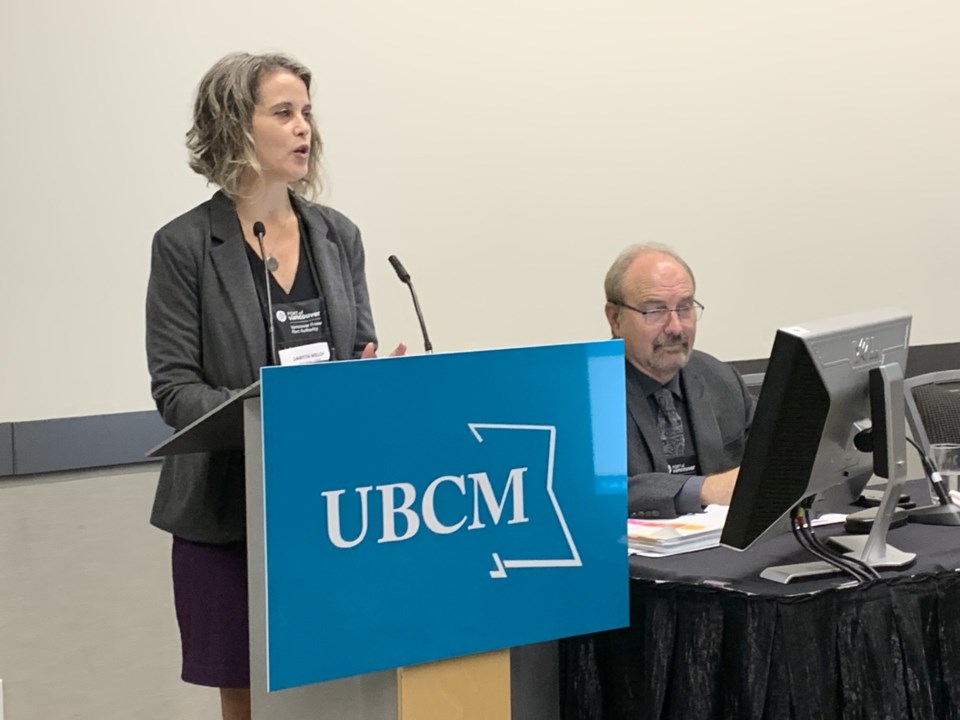Changes coming to B.C.’s 911 system will allow emergency responders to geographically pinpoint emergency locations and allow users to text photos, Union of BC Municipalities (UBCM) conference delegates heard Sept. 21.
E-Comm president Oliver Grüter-Andrew said the shift is going to be a big technological change.
“Picture it as going from a rotary phone to an iPhone 15,” he said.
Grüter-Andrew said new features would include:
- the ability to know where a caller is;
- texting capability;
- seamless routing of calls to those who need to respond to them; and,
- the ability to deal with calls from 911 centres in other places, to deal with issues in B.C.
Locating people would be done through Geographic Information System (GIS) mapping,
Grüter-Andrew said the new system would generate a lot of data allowing users to know where changes in service delivery are needed. That would include passing data to local communities for establishing service priorities.
What it does not mean, he stressed, is more police or paramedics on the ground.
“It is something that will help us get those things right,” he said.
Supporting the changes is a $150-million investment announced by Minister of Public Safety and Solicitor General Mike Farnworth March 1.
“Next Generation 911’s advanced technology will help ensure safer and co-ordinated emergency responses,” Farnworth said at the time.
Ivan Rincon, executive director of project management for the Ministry of Citizens' Services, said part of those funds would be used by municipalities. Some $90 million will go to E-Comm with the balance being distributed to local communities through the UBCM.
Danyta Welch, UBCM manager of local government program services, said $36 million has been distributed thus far.
Costs include paying for GIS and mapping licences as well as local training and development, Welch said.
Jeffrey Smith, Telus management consultant for regulatory affairs, said all emergency calls are routed to emergency services via the Telus system.
He said strict cybersecurity protocols would be put in place.
An issue already discussed at the conference is a cellphone levy to pay for 911 services. Speakers have been clear it is not a levy on individual calls but rather a monthly levy all users would pay.
“This is important because we’re gradually phasing out landlines,” Coquitlam Coun. Craig Hodge said. “More people are using cellphones than ever before.”
He said discussion on that issue began a decade ago leading to several discussion papers.
However, he said the provincial cabinet gave no policy direction on the issue at the time.


